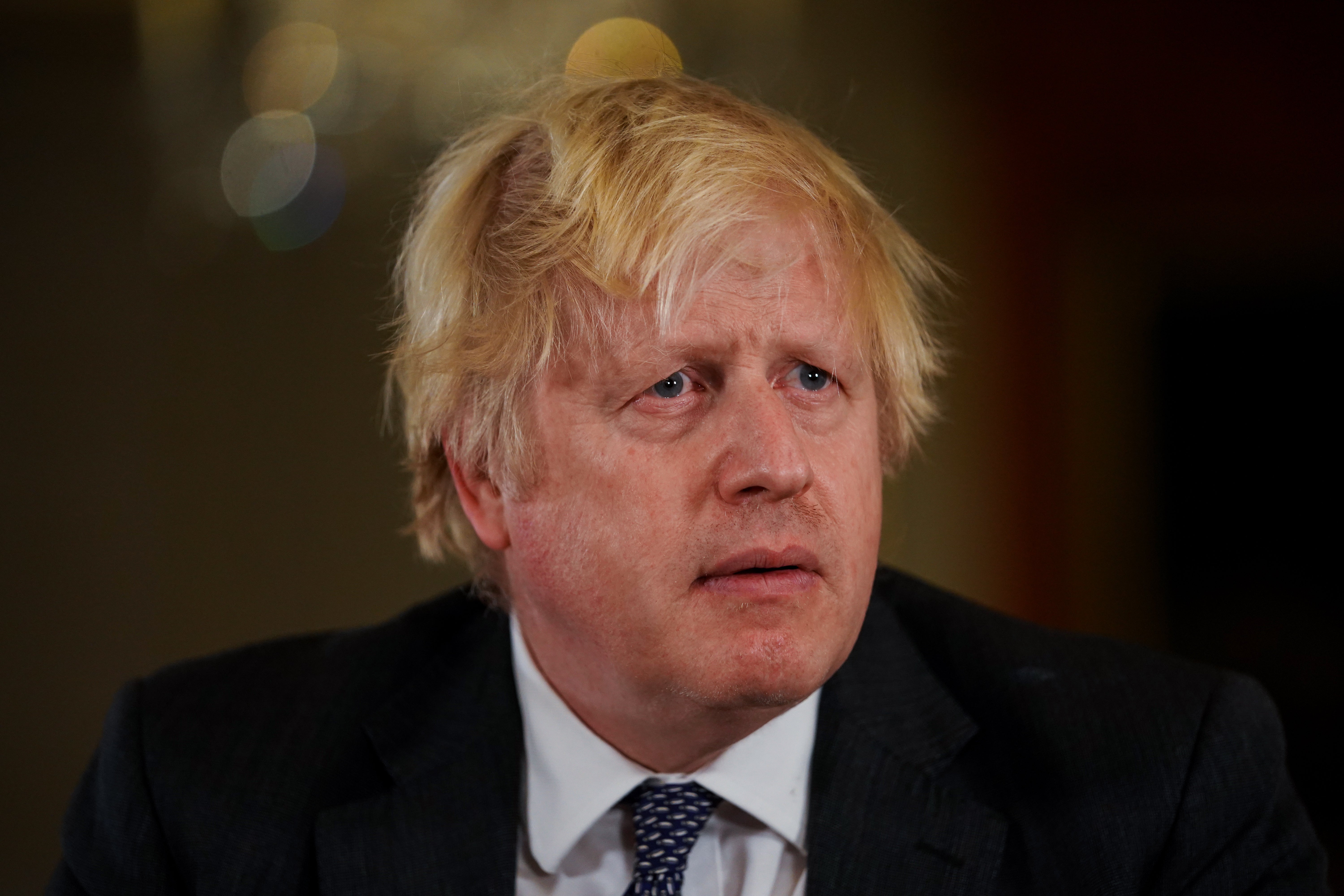Boris Johnson faces ‘burning deadline’ to keep energy bills down as prices set to soar
Average household could have to fork out extra £700 per year

Your support helps us to tell the story
From reproductive rights to climate change to Big Tech, The Independent is on the ground when the story is developing. Whether it's investigating the financials of Elon Musk's pro-Trump PAC or producing our latest documentary, 'The A Word', which shines a light on the American women fighting for reproductive rights, we know how important it is to parse out the facts from the messaging.
At such a critical moment in US history, we need reporters on the ground. Your donation allows us to keep sending journalists to speak to both sides of the story.
The Independent is trusted by Americans across the entire political spectrum. And unlike many other quality news outlets, we choose not to lock Americans out of our reporting and analysis with paywalls. We believe quality journalism should be available to everyone, paid for by those who can afford it.
Your support makes all the difference.Boris Johnson’s government faces a “burning deadline” in the next three weeks to decide how to offset a massive rise in household energy bills, the head of an energy company has said.
Bills could go up by more than 50 per cent for millions of customers, a rise that could cost average households around £700 per year.
“To some extent their burning deadline is the day that the new level of the price cap gets announced… because that’s when you would think that it becomes obvious they are going up,” said Good Energy boss Nigel Pocklington. Ofgem will announce the new price cap level in February.
Estimates range but some believe it could be raised to around £2,000 for the average household, from £1,277 today.
It comes as a think tank predicted the number of families spending at least 10 per cent of their budgets on energy bills will triple when the new energy price cap comes into effect in April.
The Resolution Foundation said the proportion of households in England in “fuel stress” – a general indicator of finding energy bills unaffordable – is currently 9 per cent. It expects that proportion to leap to 27 per cent after the changes.
The figure could equate to 6.3 million households suffering fuel stress.
“You absolutely need to be concerned for vulnerable households and homes and families that will be put into fuel poverty,” Mr Pocklington said.
“There’s this odd fact of life around your energy bill. You can’t avoid it and yes, there’s a bit of difference in consumption between wealthier households and those that are less well off. But it’s not huge, and therefore it’s a form of strangely regressive taxation in some respects. The duke and the dustman, as they used to say, are paying the same per unit cost.”
The government has several options to offset the energy price rises and protect households across the country.
They range from cutting the 5 per cent VAT on energy bills – a £100 saving – getting rid of some levies on energy bills, and expanding the warm home discount.
Many energy companies have also suggested that if the government got banks to lend them between £10 billion to £20 billion, the firms could smooth the price rise. They could use the loans to top up energy bills, and instead charge customers a little bit more over several years to recoup the cost.
But the idea has been criticised by some companies – bills are likely to remain high for years, so the loans could take a long time to pay back, they say.
The idea’s critics include British Gas’s owner Centrica, which called it a “bailout” earlier this month. However, Mr Pocklington said it was wrong to call the loans a bailout of energy companies, as they will need to be paid back.
The loans would be used to support customers, so their energy bills do not increase by more than 50 per cent from April.
He said the risk of bailing out badly run energy firms has subsided because most have gone out of business in recent months because of the crisis.
“There is not a significant moral hazard here. I think anyone who’s still operating in this market is prudently run, and knows what they’re doing, otherwise they would have been knocked over by now,” he said.
“We all have the choice in front of us just to keep pushing our prices up to cover the cost of the wholesale market. And that’s the one lever we’ve got.
“No one can expect us not to do that unless there’s some sort of intervention to smooth out those increases.”
Join our commenting forum
Join thought-provoking conversations, follow other Independent readers and see their replies
Comments